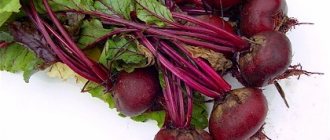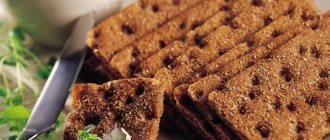Are you hungry
If you decide 3 Reasons You Crave Sweet or Salty Foods / Cleveland Clinic to go on a strict diet and completely give up carbohydrates, often replace breakfast with a cup of coffee or skip lunch, then the body does not receive the calories it needs to work. And the easiest way to replenish energy is to eat cake, chocolate or candy.
What to do
To avoid overeating and gaining weight due to the abundance of carbohydrates, you need to adhere to the principles of healthy eating 5 key habits of healthy eaters / Mayo Clinic:
- Don't skip breakfast.
- Drink enough fluids. Men are recommended up to 3 liters, and women up to 2.1 liters per day.
- Eat more fruits and vegetables, grains, lean meats.
I want something sweet
Interesting article : How to get rid of a bad habit in 2 minutes?
Lack of chromium, phosphorus or tryptophan (the latter is especially lacking on cloudy days). Buy chromium preparations at the pharmacy - and the problem of the millennium will most likely be solved :).
Alternatively, try meditation - it heals and what not.
For convenience and greater clarity, here is a useful infographic on the topic:
Interesting article: TOP 3 credit cards of 2021 - with cashback, grace period up to 100 days and refinancing.
... These are the general patterns of the emergence of our gastronomic quirks. If you want to get a medically accurate picture of the needs of your body, go to a good clinic and get your hair analyzed for microelements. At the same time, check for heavy metal salts.
Source: book by A.V. Kovalkova “Lose weight wisely”:
Read/Listen
About 5 favorable conditions for the “100 days without interest” credit card from Alfa-Bank
Have you played sports recently
During training, the body actively consumes energy and then looks for ways to restore it. This is confirmed by an American study by CK Martin, WD Johnson, CA Myers, JW Apolzan, CP Earnest, DM Thomas, JC Rood, NM Johannsen, C. Tudor‑Locke, M. Harris. Effect of different doses of supervised exercise on food intake, metabolism, and non‑exercise physical activity: The E‑MECHANIC randomized controlled trial / The American Journal of Clinical Nutrition. 171 overweight people did exercises to lose weight. Scientists noticed that after long, exhausting exercise, the subjects' cravings for sweets increased.
What to do
It may be necessary to carefully select physical activity so as not to cause overwork. Special nutrition for training is also recommended. Here are his principles Nutrition rules that will fuel your workout / Mayo Clinic:
- Don't forget about carbohydrates. They need to be eaten at 3–5 g per kilogram of body weight per day if training is of moderate intensity, and 6–10 g if training is heavy. These should be whole grains, pasta, fruits and vegetables.
- Include proteins in your diet. Eat 1.2–2 g per kilogram of body weight daily. Poultry and fish are best. But you can use legumes, eggs, cheese or yogurt.
- Don't give up fat. The best sources are avocados, seeds and nuts, and vegetable oils.
- Eat 2-3 hours before exercising. Be sure to have a protein snack or protein shake within 15 minutes of your workout.
You consume a lot of artificial sweeteners
Research by Q. Yang. Gain weight by “going diet?” Artificial sweeteners and the neurobiology of sugar cravings / Yale Journal of Biology and Medicine show that trying to replace sugar with artificial sweeteners often increases the consumption of sweets and high-calorie foods. This is due to the fact that aspartame and other substitutes do not provide the body with as much energy as sugar. The required amount of calories is not supplied, and the desire to eat something sweet does not disappear. At the same time, food consumption increases.
What to do
If you want to give up sugar, it is better not to switch to sugar substitutes, but simply try to reduce the amount in your diet. It turns out it's not that difficult. One study by C. Bartolotto. Does Consuming Sugar and Artificial Sweeteners Change Taste Preferences? / The Permanent Journal found that sugar cravings go away within 3-6 days of quitting.
Why do you crave sweets even if you are not hungry?
Craving for sweets is an irresistible feeling. Why does it happen? Why do you want sweets to eat even a very hearty lunch or dinner? How to reduce your sugar intake? We answer these and other questions about the effect of sweets on the body together with nutritionist Akkumis Berikovna.
What is sugar?
First, let's figure out what sugar is. According to the World Health Organization (WHO), free sugars include monosaccharides and disaccharides added to foods and beverages by the manufacturer, cook or consumer, and sugars naturally present in honey, syrups, fruit juices and fruit juice concentrates. What we used to call sugar is sucrose. It is a disaccharide and consists of two monosaccharides - glucose and fructose, into which sucrose is broken down during digestion. Glucose is the most common fuel for all cells of the body; it is formed during the breakdown of not only sucrose, but also other carbohydrates.
“There is also the term ‘natural or naturally occurring sugars’. They are found in vegetables, fruits, and dairy products and are digested more slowly than free sugar. In addition, they enter the body together with other nutrients, vitamins and minerals, and fiber, which also slows down the absorption process. Medical experts are unanimous in their opinion that high levels of free sugar intake are directly related to poor diet quality, obesity and the risk of developing non-communicable diseases,” explains the nutritionist. Therefore, it is important to understand why we crave sugar and how to reduce our consumption.
Insulin surge and imaginary feeling of satiety
“One of the reasons for cravings for sweets lies in the mechanism of glucose absorption. When consuming fast, easily digestible carbohydrates (sugar and sweets), there is a rapid increase in blood glucose levels. A signal goes to the brain about the arrival of food, and the feeling of hunger is dulled. However, then a sharp release of insulin occurs and blood glucose levels drop. After a short time, the feeling of hunger reappears, and often the person again “throws” what is at hand into his mouth. If it’s candy, cookies or a cupcake, the process is repeated, an imaginary short-term feeling of satiety is created, and the vicious circle closes.”
Simple carbohydrates are found in vegetables, fruits, and dairy products. But, as mentioned earlier, the dietary fiber and fats found in these products slow down their absorption, and the process of insulin production is much slower and more physiological.
You have a low taste sensitivity to sugar
Taste perception depends on the concentration of a certain substance (which causes taste sensations - sweet, bitter, sour and salty) in food. In order for a person to feel the taste, in this case sweet, the concentration of the substance must reach the detection threshold. Before this detection threshold, your taste buds will not detect sweetness. Each person has an individual detection threshold; it is influenced by many factors - from physiological characteristics to diet. If you have a high threshold for detecting sweet tastes, you will need more sugar to feel satisfied.
Sweets are a reward
“From the point of view of neurobiology and neurophysiology, glucose is involved in the reward system. This is a set of structures of the nervous system that regulates and controls behavior with the help of positive emotions and feelings of pleasure in response to actions taken or decisions made. Consumption of sweets triggers the so-called mesolimbic pathway, the main component of which is dopamine, a pleasure mediator. It gives the brain instant reward. This mechanism inclines us to behavior favorable for the survival of the species. When the reward system is triggered, the limbic system reinforces the behavior. That is, we will try to repeat the action that caused pleasure over and over again. In this case, it is the consumption of sweets,” explains our expert. Therefore, many have formed a positive psychological association with sweets - sugar gives a short-term release of dopamine, temporarily improving mood.
The nutritionist explains that if our ancient ancestors had to work hard to find and collect sweet fruits and berries to enjoy sweet food, this is not difficult for modern people. Sweet, high-calorie food is everywhere, we no longer need to look for it, we can trigger our reward system as often as we like. This leads to the next question:
Sweet cravings – sugar addiction?
“It would seem that the reward system’s response to sweets resembles classic drug addiction, but scientists are not so categorical about food addiction to sugar. There is evidence in the scientific literature suggesting the development of sugar addiction in experimental animals under certain conditions. But most likely this fact is due to the periodic restriction of animals’ access to sweets, and not to the neurochemical effects of glucose. There is currently insufficient evidence to support sugar addiction in humans.”
Sweets after lunch are a habit
“Perhaps your craving for sweets is due to an established eating habit. Dessert at the end of the meal is a tradition formed historically. It was a logical conclusion to the meal and left a pleasant aftertaste. From a physiological point of view, sweets should be eaten at the end of the meal, because sweets eaten on an empty stomach will cause a short-term rise in blood glucose, a surge in insulin and will not bring complete satisfaction.”
The eating habit can also extend from childhood if the child was rewarded with candy after eating lunch. This is how sustainable eating behavior is formed, which continues into adulthood.
Our body requires variety
Also, sensory-specific satiety or “sensory satiety” may be to blame for our desire to eat sweets after the main meal. This phenomenon explains why we are more likely to eat more food if we have a wide choice of different dishes and foods in front of us. “Sensory satiety” is also considered an evolutionary mechanism. Vox dedicated a video to this phenomenon, where they also conducted a mini-experiment.
On the first day, a group of people were given a portion of macaroni and cheese and asked to eat as much as they could until they were full. After the main course, they offered “dessert” - another portion of macaroni and cheese and again asked us to eat until we were full. The next day, the same group of people were given a serving of macaroni and cheese, but were offered ice cream for dessert. Subjects in this group ate three times more ice cream for dessert than a second helping of macaroni and cheese. A similar experiment was carried out by Russell Keast, a professor of food and sensory science at Deakin University, only using chocolate and strawberry milkshakes as the test food units. On the first day, the experiment participants had to consume 300 ml of strawberry milkshake, and then another 700 ml of the same drink, but as much as they wanted. On the second day of the experiment, participants were given a chocolate milkshake after a strawberry milkshake. As expected, more of the chocolate drink was consumed.
This indicates that the body may become bored with a certain food and signal to the brain that it is full. The human brain can also override satiety signals if it perceives that a particular dish may satisfy other taste needs. Therefore, despite physical satiety, at the sight of a new tempting dish our appetite awakens again.
You're not full
“It is also possible that your brain has not yet been “satiated.” Regulation of appetite and satiety is a very complex process involving neurohumoral processes. Signals that it is time to stop eating enter the hypothalamus in different ways (signals from stomach receptors, increased glucose levels, neuropeptides that suppress appetite and stimulate the satiety center during the absorption of nutrients during the digestion process, etc.). Eating hastily (when food is poorly chewed) in front of the TV or smartphone leads to the fact that the signal of satiety has not yet arrived, and the brain decides to eat something else.
Or maybe you really haven't eaten enough. The stomach is not full, or the food is not sufficiently complete or satisfying - the feeling of satiety does not occur. Then our desires turn on, and our hand habitually reaches for foods rich in simple sugars, which are always on the table.”
How to stop eating sweets?
The nutritionist advises: if you have a crazy sweet tooth, start giving up sweets gradually - by reducing the portion of sugar in tea or coffee, choosing a smaller portion of dessert or eliminating it from one of your meals. No one is asking you to give up sweets altogether - there are no “forbidden foods.” It is much better to allow yourself to eat small portions of your favorite foods than to give them up completely. This can cause a desperate desire to eat it.
“Replace high-calorie sweets with natural ones (fruits, natural marshmallows, marshmallows, dried fruits - in small quantities). Eat more complex carbohydrates, proteins, and don’t be afraid of fats, especially healthy ones. Choose dairy products that are not low-fat, but have normal fat content. Fats give foods flavor. Typically, when fat is removed from a product, manufacturers add sugar and various additives to the product to maintain an attractive taste. A varied and adequate diet will provide you with high-quality satiety and help you resist temptation.”
To increase your threshold for detecting sweets, you can train your taste buds by reducing your intake of sweets. This way, you will edit your taste preferences and form new preferences - you will begin to enjoy fruits and sweet vegetables, such as pumpkin, and not cakes and pastries.
Main types of sugar
• Beet • Cane • Palm • Malt • Maple • Sorghum
Accumis believes it's important to reduce your sugar intake, even if it's natural sugar (like cane sugar), which contains minerals and vitamins. Sugar is sugar, no matter whether it is healthier or not.
What is the optimal amount of sugar?
“WHO recommends that energy from added sugars should not exceed 10% of daily dietary energy. For healthy people, “free sugar” can be left in the diet, but consume no more than 40-50 grams per day (about 10-12 teaspoons). This applies to all types of sugar. A significant portion of the sugars consumed by modern humans are “hidden” in processed foods that are not usually considered sweets. According to the WHO, one tablespoon of ketchup contains approximately 4 grams (about 1 teaspoon) of free sugars. One can of sugar-sweetened soda contains up to 40 grams (about 10 teaspoons) of free sugars.”
What names does sugar go by?
Check labels - you may not find the word "sugar" in the ingredients, but it is hidden under names such as:
• Glucose, fructose, dextrose, maltose, sucrose • Agave nectar • Rice syrup/rice malt • Corn syrup/high fructose corn syrup, chemically produced • Molasses • Brown sugar • Artificial sweeteners: aspartame, dextrose, sucralose, saccharin • Natural sweeteners or sugar alcohols: xylitol, erythritol and sorbitol
“Sugar can also be hidden in foods that are not inherently sweet: ketchups, barbecue sauces, spaghetti, mayonnaise, salad dressings and other condiments, canned goods, fitness bars, bread and more. A lot of sugar is found in ready-made breakfasts (muesli, cereal), low-fat yogurts (even if it says “No Added Sugar” in capital letters), energy drinks, and canned fruits.”
Are you stressed?
After studying a small group of people, the researchers noticed R. Sinha, P. Gu, R. Hart, Guarnaccia JB. Food Craving, Cortisol and Ghrelin Responses in Modeling Highly Palatable Snack Intake in the Laboratory / Physiology & Behavior that cravings for sweets, as well as foods high in fat, increase in those exposed to chronic stress. Believed to be A. Bali, AS Jaggi. An Integrative Review on the Role and Mechanisms of Ghrelin in Stress, Anxiety and Depression / Current Drug Targets that ghrelin synthesis increases in this state. This is a hormone that is produced in the cells of the stomach lining and stimulates appetite.
What to do
To avoid overeating, you need to find suitable methods to deal with stress. These could be Stress relief / Mayo Clinic:
- yoga;
- meditation;
- favorite hobby;
- playing sports;
- breathing techniques;
- any way to throw out emotions.
Insulin resistance
Insulin, produced by the pancreas, controls blood sugar levels and helps transport glucose into cells for further energy production. With insulin resistance, cells lose sensitivity to the action of insulin, which is why glucose is not supplied in the required amount, and the cells experience energy starvation. This results in weakness, dizziness and cravings for fast carbohydrates - that is, for sweets. Therefore, if you notice these symptoms, we recommend checking your glucose levels
and
insulin in the blood
. Insulin resistance is a serious problem that leads to type 2 diabetes and cardiovascular disease.
You don't sleep enough
If a person does not get enough sleep S. Frank, K. Gonzalez, L. Lee-Ang, MC Young, M. Tamez, J. Mattei. Diet and Sleep Physiology: Public Health and Clinical Implications / Frontiers in Neurology, it, like stress, increases ghrelin levels. At the same time, the concentration of leptin decreases, which increases the risk of developing obesity.
What to do
Need to get enough sleep. If that doesn't work, try these Sleep tips: 6 steps to better sleep / Mayo Clinic:
- Go to bed at the same time every day. This will reinforce the sleep-wake cycle.
- Don't sleep during the day. Otherwise, it will be more difficult to fall asleep in the evening. If you really want to lie down after lunch, limit yourself to 30 minutes.
- Exercise regularly. This way you will release energy.
- Fall asleep in a calm environment. The room should be dark, quiet and slightly cool. Maybe a bath or other method of relaxation will help someone relax before bed.
- Don't use 5 ways to sleep more soundly / Mayo Clinic gadgets in the evening. They make it difficult to relax.
- Don't go to bed feeling hungry or with a full stomach. This is additional discomfort.
You quit smoking
When a person tries to get rid of RJ Wurtman, JJ Wurtman, MM Regan, JM McDermott, RH Tsay, JJ Breu. Effects of normal meals rich in carbohydrates or proteins on plasma tryptophan and tyrosine ratios / The American Journal of Clinical Nutrition from this bad habit, the synthesis of serotonin, or the hormone of happiness, changes in the brain, mood becomes unstable, and even signs of depression may appear. And this leads to an increase in cravings for sweets.
What to do
If you want to quit smoking, you need to choose the appropriate method. Perhaps sports and a balanced diet will help some, while others need replacement therapy and work with a psychotherapist.
I want fat
Interesting article : How breathing according to the Pranayama system helped Soviet cosmonauts
Possible reasons:
- You have increased physical activity;
- You are obese;
- ... And so you are on a diet with a serious restriction of fats.
- Lack of fat-soluble vitamins.
Something needs to change - over time, an unjustified craving for fatty foods leads to changes in the brain and the formation of the habit of eating fatty foods.
How to reduce cravings for fatty foods? Eat cheese, dairy and fermented milk products (kefir, yogurt), and broccoli.
... And now - the highlight of the program! xD
Do you have premenstrual syndrome?
In women, RJ Wurtman, JJ Wurtman, MM Regan, JM McDermott, RH Tsay, JJ Breu decreases before the onset of menstruation. Effects of normal meals rich in carbohydrates or proteins on plasma tryptophan and tyrosine ratios / The American Journal of Clinical Nutrition serotonin synthesis. Therefore, the mood worsens and Premenstrual Syndrome Clinical Presentation / Medscape cravings for sweets appear. And this is fraught with excess weight gain.
What to do
To reduce Premenstrual Syndrome Clinical Presentation / Medscape signs of premenstrual syndrome, doctors prescribe medications that maintain normal serotonin levels and also recommend a diet rich in vegetables and fruits. Some women benefit from massage, psychotherapy, or herbal remedies.
Are you depressed?
In people with depression RJ Wurtman, JJ Wurtman, MM Regan, JM McDermott, RH Tsay, JJ Breu. Effects of normal meals rich in carbohydrates or proteins on plasma tryptophan and tyrosine ratios / The American Journal of Clinical Nutrition cravings for sweets and high-calorie foods appear for the same reason - decreased serotonin production.
What to do
In this case, you need to fight Depression (major depressive disorder) / Mayo Clinic with a nervous disorder. For this purpose, medications, psychotherapy are used, and in severe cases they are admitted to the hospital.
Do you have diabetes?
This disease is accompanied by 3 Reasons You Crave Sweet or Salty Foods / Cleveland Clinic a constant and intense feeling of hunger, and some people binge on sweets. Sometimes this is a sign of high or low glucose levels.
What to do
If, in addition to sweets, you constantly want to drink and urinate a lot, you need to see a therapist. He will order a blood glucose test. Once the diagnosis is confirmed, the doctor will give recommendations on what to eat and what medications to take.
And those who have long been diagnosed with diabetes mellitus need to discuss treatment with an endocrinologist and, perhaps, change something in it.
I want something sour
Kefir, sauerkraut, etc.
- Your food is too bland; your diet includes “neutral” foods like boiled meat/fish, potatoes and milk. More salt!
- Vitamin C deficiency and magnesium deficiency after toxicosis (in pregnant women), poisoning, weakened immunity. Eat nuts, seeds, legumes, and everything will be fine.
- If you have a persistent craving for salty foods, you may suspect problems with the gallbladder or liver. Contact a specialist.
You have compulsive overeating
This is the name for an eating disorder in which a person cannot control food intake. He eats a lot of Binge eating disorder / US National Library of Medicine high-calorie foods (usually sweets and fatty foods), even when he is not hungry. He often does this secretly because he feels remorse.
What to do
If you have compulsive overeating, you should consult a psychotherapist. The doctor will prescribe medications that reduce anxiety and eliminate depressive disorder. Various methods of psychotherapy also help.
You have a genetic predisposition
Scientists discovered K. Keskitalo, A. Knaapila, M. Kallela, A. Palotie, M. Wessman, S. Sammalisto, L. Peltonen, H. Tuorila, M. Perola. Sweet taste preferences are partly genetically determined: identification of a trait locus on chromosome 16 / The American Journal of Clinical Nutrition in humans, the region of the chromosome with which increased cravings for sweets is associated. If this gene is inherited, then the desire to eat chocolate or candy will be higher than in people without this chromosome fragment.
What to do
You cannot get rid of the problematic gene. But you can follow simple tips to eat less sweets. Here they are: Simple steps for cutting sugar from your diet / Mayo Clinic:
- Read the labels. Foods such as sauces and yogurt often contain hidden sugar or sugar substitutes such as corn syrup, molasses, and honey.
- Eat more vegetables and fruits, whole grains.
- Replace the candy dish at home with a bowl of fruit.
What to eat instead of sugar? 8 vegetables and fruits
Natural sugar, which is found in vegetables, fruits and grains, is much easier, simpler and more correctly absorbed by our body. It gives us a supply of energy that takes a long time to be consumed. Another advantage of vegetables and fruits is that they combine sugar with other nutrients, as well as vitamins, minerals, healthy acids, and fiber. This is what makes our diet healthy.
Many will argue that pumpkin, zucchini or spinach are not sweet enough. But this is only because we are very accustomed to refined sweets. The first thing I would recommend when you are trying to give up sugar is to slowly cleanse your taste palette. Perhaps at first your receptors will not perceive natural sugars, you will miss the sweetness. But after a short time, when the body gets rid of everything unnecessary, you will feel a completely different taste and a completely different quality of products. And they will seem sweeter than cakes to you!
Figs Queen Cleopatra's favorite fruit is sweeter and healthier when dried than raw. Figs provide a feeling of fullness quickly and for a long time, and this is a godsend for those who are watching their weight.
Strawberry. Queen Berry is good fresh or frozen, and I often use it in smoothies and desserts. Of course, I really like the taste of strawberries, but they are also very healthy! It contains many substances that help burn fat, it is rich in vitamin C, which improves immunity, and a rare antioxidant - ellagic acid - fights skin damage and prevents the appearance of wrinkles.
Papaya. I love papaya! It is rich in enzymes that improve digestion and vitamins. This is an excellent fruit for diabetics: even very sweet papaya is low in sugar and has a low glycemic index. Therefore, papaya is also an excellent option for those who want to lose weight.
Apples. There is a great saying: “An apple a day keeps the doctor away.” I eat apples all the time, they contain a lot of antioxidants that help the body fight free radicals, as well as B vitamins that lower stress levels and improve memory. It is the best snack during the day and an ideal food for diabetics.
Banana. What could be simpler than a banana? It's one of my favorite snacks and a must-have ingredient in many healthy smoothie and shake recipes. Banana is an excellent source of vitamins, minerals and fiber, and helps normalize digestion and blood pressure thanks to the large amount of potassium it contains.
Pumpkin. Soup, pie or salad - you can create and prepare so many delicious things using pumpkin! She is one of our best allies in our fight against aging. It's high in fiber but low in calories, making it an ideal food for those struggling with weight loss.
Carrot. It contains beta-carotene, which is important for our health and beauty, and it contains a lot of fiber and antioxidants. Carrots make excellent juices, both solo and mixed with vegetables (celery) or fruits (apple).
Pomegranate. It is very useful for the immune system, heart, blood vessels. The substances contained in pomegranate reduce blood pressure and the risk of strokes and heart attacks, it is very beneficial for joints and protects our skin from ultraviolet rays.










